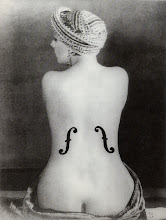 Thanks to Paul Smith for the photo.
Thanks to Paul Smith for the photo.Jim Hart's Gemini played the Clare Cellars to promote their excellent sophomore album Narrada. Their two forty-five minute sets consisted of original songs from their album as well as a rendition of Wayne Shorter's 'Infant Eyes' and a new unpublished track. The quartet features Hart on vibraphone, Ivo Neame (who is better known as a pianist) on alto sax, with Jasper Hoiby on double bass and Dave Smith on drums. The group is emblematic of the precociousness and diligence of the young London scene, its members are concurrently up-and-coming and firmly-established.
The vibraphone is an oscillating electric percussion instrument which resembles a large xylophone in appearance and timbre. Hart's style is influenced in particular by vibes legend Bobby Hutcherson, a seminal performer and composer in the 1960s 'out' movement, which was an abstractive development of bebop. Likewise, Smith's explosive polyrhythmic drumming resembled that of Tony Williams, another key player and innovator of the era.
Smith began 'Dark Moon' at a furious tempo, extracting fabulous tones from his kit. The group pounced on the number - the consistently melodic and contemplative Hoiby went up a gear and started to strum-pluck his bass as Neame tore into the tune with a John Zorn like intensity. Towards the end, drums and vibraphone were left to play the head in perfect unison, Hart's mallets scuttling up and down the keys as Smith stabbed the toms like a boxer hitting a speed bag.
The musicianship on display was simply outstanding as the group meticulously unlocked Hart's challenging compositions with unostentatious virtuosity. But the extent of the their success derives from the fact that they thrilled and entertained a largely unknowing audience, playing songs with shifting time signatures and obscure harmonies that never seemed broken-up or contrived.
The combination of the delightful ambience of Clare cellars and the consistently strong programming of its jazz night is always a hit, so it was a pity to see a poor attendance. Next up on 29th November are two home-grown acts: the double trombone ensemble Hip Bones with support from Spare Bed Trio.

